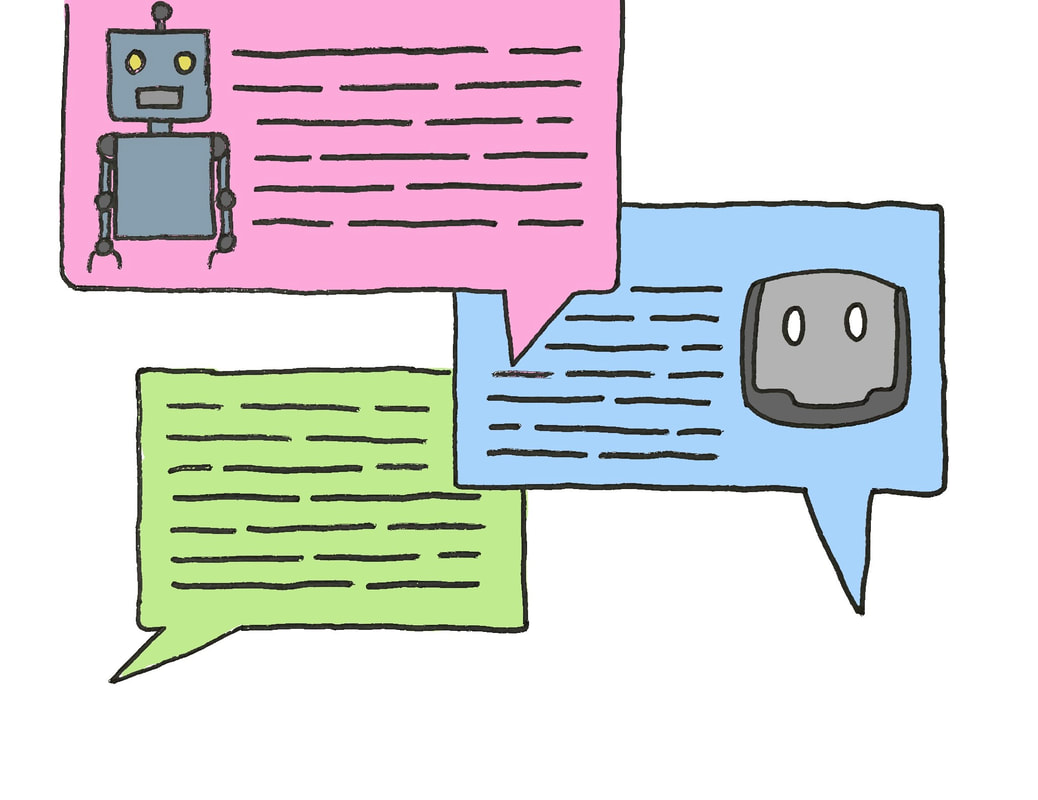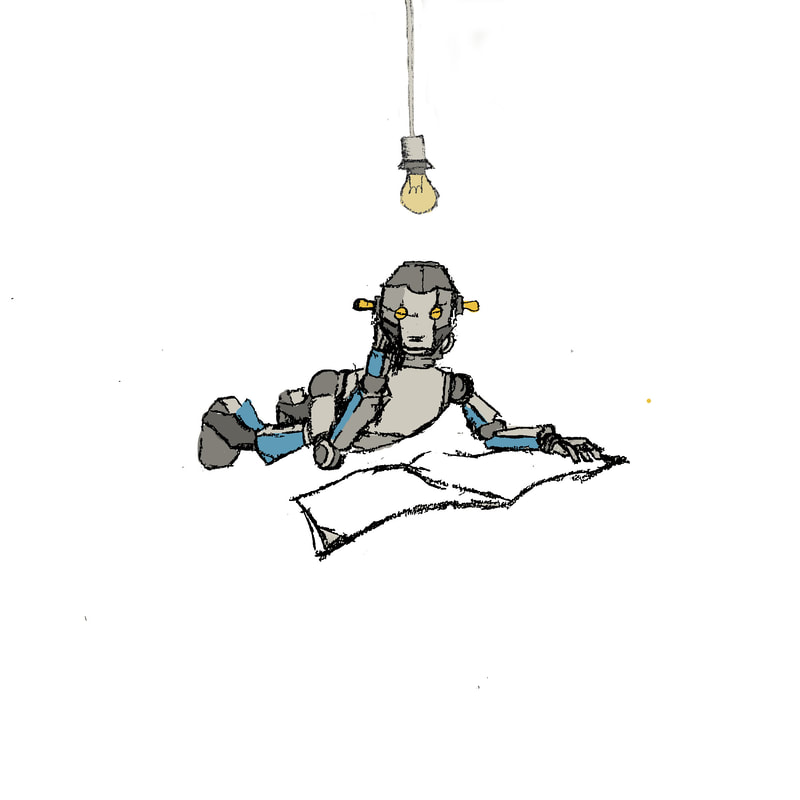|
By Ramya Subramanian Artificial intelligence permeates most aspects of our lives. The device you're reading this article on probably uses some level of artificial intelligence. Whether using google maps to navigate, scrolling through TikTok, accessing gmail, or watching the “recommended section” on Netflix, these programs require AI to create an optimal experience for the user. But, what exactly is AI and how does it improve experiences for us? AI, or Artificial Intelligence, is essentially the simulation of intelligent human processes through machines. A big component of AI is machine learning, which allows machines to make predictions based on large sets of data. For example, the “recommended shows” section on Netflix analyzes past user data to infer what the user would like to watch next.
AI is used heavily in many social media applications. For example, Facebook uses a concept called Deep Text to monitor conversations on the platform. Deep Text tracks the way users speak (slang, abbreviations, and punctuation) to understand the context in each conversation. Twitter follows a similar technique to monitor tweets. This emerging field of AI interpretation and generation of human language is called natural language processing (NLP). NLP is considered to be the intersection of linguistics and computer science. It uses linguistics to help the machine learn and process the human language in order to perform repetitive tasks. Normal human language goes beyond understanding words and their meaning, it also is realizing how those words are connected and linked. Despite language being such an easy tool for communication, computers take a lot more to process and adapt in order for tools like google translate to be successful. AI does not just enhance applications. Now, you can find AI social media influencers. A popular example is Lil Miquela, who is described to be a “19 year old robot living in LA.” Lil Miquela debuted on Instagram in April 2016, seemingly as a marketing stunt by Brud, an LA based startup. Lil Miquela was not the first example of a company publicizing an AI influencer. In 2016, Microsoft launched a bot on Twitter namedTay. The first version of Tay was launched in China with the name XiaoIce chatbot. It was used by over 40 million people with almost no issues. However, when Microsoft launched a similar version in a radically different cultural environment, the United States, problems arose. Within 24 hours of Tay being released, Tay began retweeting offensive and reprehensible words and images. What was intended to be a social experiment in the field of NLP, machine learning, and social networks, turned into a horrendous revelation of online trolling. Tay was originally intended to facilitate and engage in conversations on Twitter by emulating a teenage girl. However, within 24 hours, many Twitter bots had exposed a vulnerability in Tay’s program—a “repeat after me” function. Through a coordinated attack on Tay, Twitter users were able to shape the bot into sharing inflammatory tweets and messages. Microsoft suspended the account within only 16 hours after its release. Despite the numerous benefits of AI, it also has a frightening potential for invading and altering social media and our daily lives. Technologists must make sure that their creations are ethical in terms of the users. As for us, regular users of technology, we need to be hyper aware that what we feed into the computer can alter its output. If all is successful, however, AI can revolutionize the future, increasing accessibility and streamlining operations, creating a better future for us all.
0 Comments
Leave a Reply. |
Categories
All
Archives
April 2024
|


